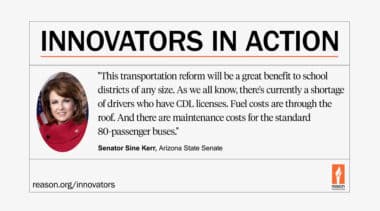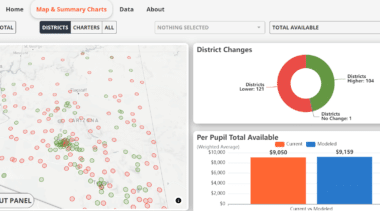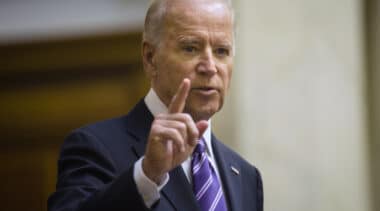Christian Barnard is assistant director of education reform at Reason Foundation.
Barnard's work includes research and analysis of state education and school district finance systems, with the goal of making them more equitable and innovative.
Barnard's writing has been featured in outlets including USA Today, Los Angeles Daily News, Washington Times, and The Hill, among others.
Barnard previously worked with the Foundation for Government Accountability, where he conducted research on labor policy and criminal justice. He also worked for the Pioneer Institute.
He holds a bachelor of arts degree in philosophy and economics from Messiah College.
-
Cracking down on critical race theory in public schools was not a winning issue
Rather than further politicize schools and classrooms, politicians should pursue policies that let parents choose whatever school is best for their children.
-
School districts use ‘capacity’ to keep low-income transfer students out
School districts use arbitrary definitions of capacity to claim they are full and deny transfer requests from low-income students.
-
Why teacher salaries are flat as school spending soars
Benefit costs, staffing trends and class sizes may explain why teacher salaries have remained flat while K-12 education spending has grown.
-
Recapping Tennessee’s historic school finance reform
The 2022 reform was a major positive shift in how Tennessee funds public education.
-
Nebraska’s K-12 education funding system lacks transparency, relies too heavily on property taxes
Nebraska ranks third in the nation for the proportion of total K-12 public school revenues it derives from local revenue sources.
-
Nebraska K-12 Education Funding Reform Model
Nebraska K-12 Funding Reform Model allows users to simulate how changes to the state’s school funding system might affect each school district in the state.
-
How K-12 support services spending can divert education funding from instruction
Nationally, per pupil support services expenditures grew by 25% from 2002 to 2020, outpacing growth in per pupil instructional expenditures, which increased by 20% over the same period.
-
How inflation could impact public school finances
High inflation poses several challenges for public schools, particularly when it comes to labor negotiations.
-
Arizona State Senator Sine Kerr on transforming student transportation policy
Arizona's new student transportation law will remove unnecessary busing regulations to help families and schools across the state.
-
What states can learn from Arizona’s new student transportation law
State policymakers can work to remove restrictions on the types of vehicles schools can use to transport students and reform licensing rules that prevent schools from hiring qualified drivers.
-
Modeling Arizona education funding reform scenarios
This analysis models how changes to Arizona's school finance system would impact the state's school districts, charter schools and overall K-12 budget.
-
Can the next mayor of LA help the city’s failing school district?
The most pressing problems facing LAUSD are declining enrollment and an increasingly unsustainable budget.
-
How states and schools can provide students more transportation options
States can pass laws to allow students to enroll in public schools outside of their zip codes — but those opportunities are meaningful only if families can afford to make the trip.
-
Biden keeps his bad promise on charter schools
The administration recently proposed a new Department of Education rule to make it more difficult for nonprofit organizations to open charter schools, forcing them to comply with many unnecessary regulations and bureaucratic paperwork requests.
-
How to bring school choice to public school families
Providing the option of small-scale customization to families who are happy with their public schools may be exactly the reform strategy the school choice movement has needed for decades.
-
Arizona’s school funding system is outdated and broken
Arizona's proposed school finance reform would address some of the stark school funding disparities across the state's school districts.
-
Why Nashville would get a smaller funding increase than other urban school districts in Tennessee’s education finance reform
A central goal of Gov. Bill Lee's education funding reform is to reduce unfair funding gaps between school districts, so they can’t all receive an equal funding boost.
-
As school choice gains traction, states also need to update their school-finance formulas
States need to update school-finance formulas that fail to fund all kids fairly, are too reliant on local taxes, and don’t easily accommodate student movement between schools.


















